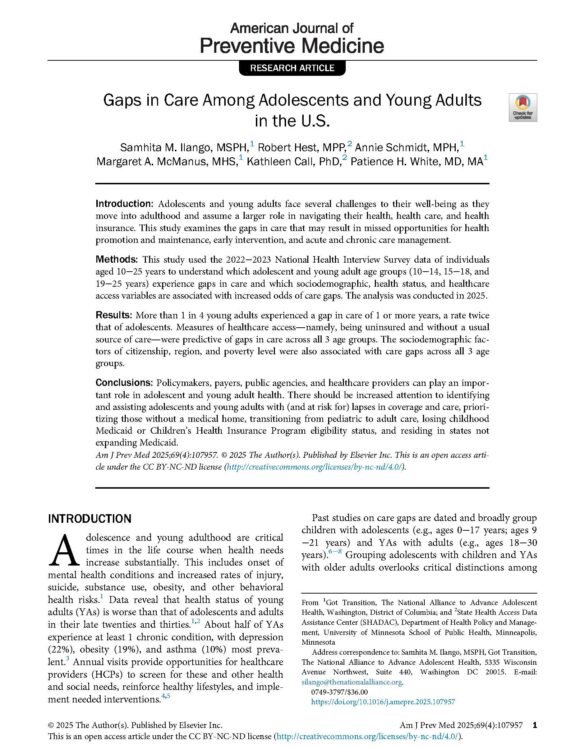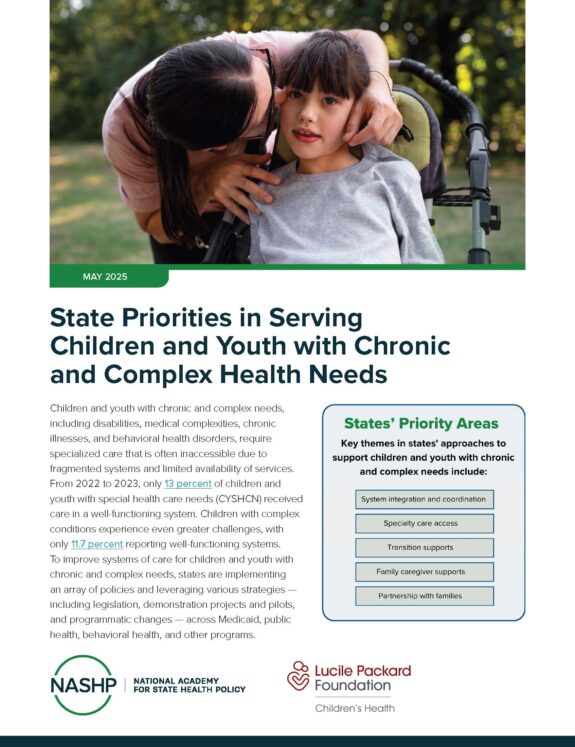A Triple Aim Approach to Transition from Pediatric to Adult Health Care for Youth with Special Health Care Needs
It is a triumph of modern medicine that over 90% of children with chronic illness now survive into adulthood. This also presents a new set of challenges, as adult health care systems struggle to find capacity to accommodate complex and vulnerable young adults with a variety of childhood onset chronic conditions. The number of these patients is growing; they are expected to live longer, and they account for a significant proportion of health care utilization and spending in their age group.
These individuals face multiple challenges: developing into adults; living with chronic illness; and the difficulties associated with the transition between complex health systems. Emerging research suggests that young people fall through the cracks during the time of transition, with costly hospitalizations and, in some cases, devastating long-lasting health consequences. There appears to be a substantial opportunity to advance transition care in all three domains of the Institute for Healthcare Improvement’s Triple Aim framework: to improve clinical outcomes, improve patient, family and provider experiences and decrease per capita health care spending.
In this Issue Brief, the authors describe key unmet needs regarding a) developing chronic disease self-management; b) enhancing capacity of the adult health care system to care for young adults with special health care needs; and c) reducing lapses in care during the transition period. Based on these unmet needs, they make recommendations for improving health care during transition that incorporate relevant high-value strategies for health care delivery. They also describe current challenges to improving care during the transition period, and suggest priorities for future research.



